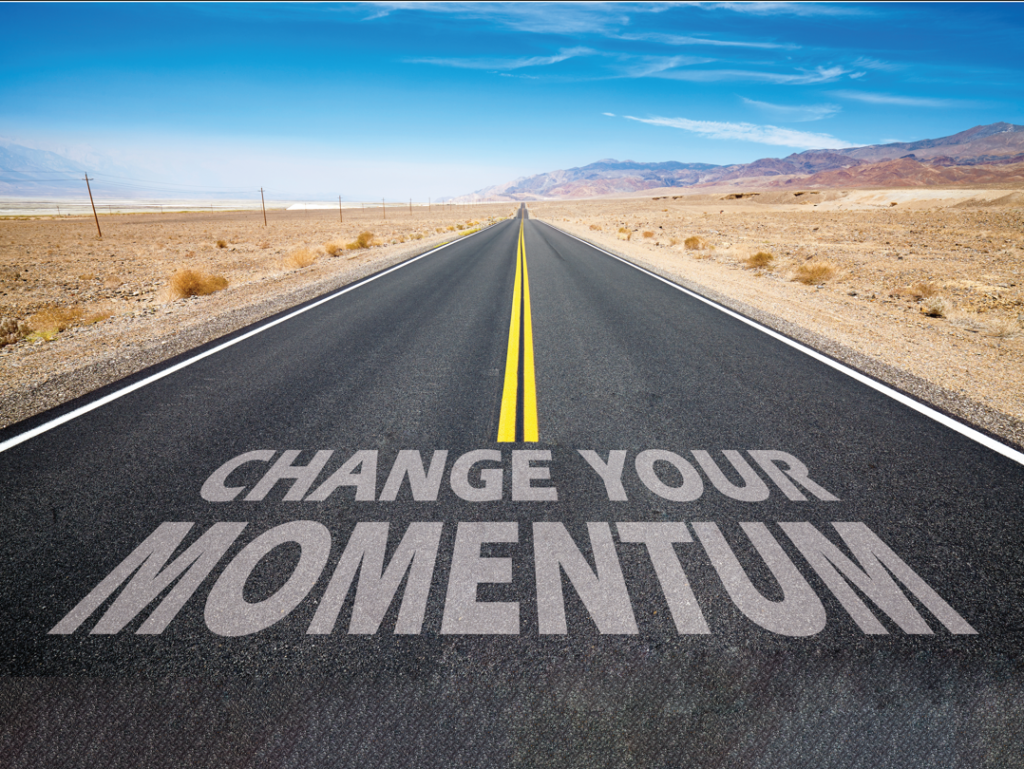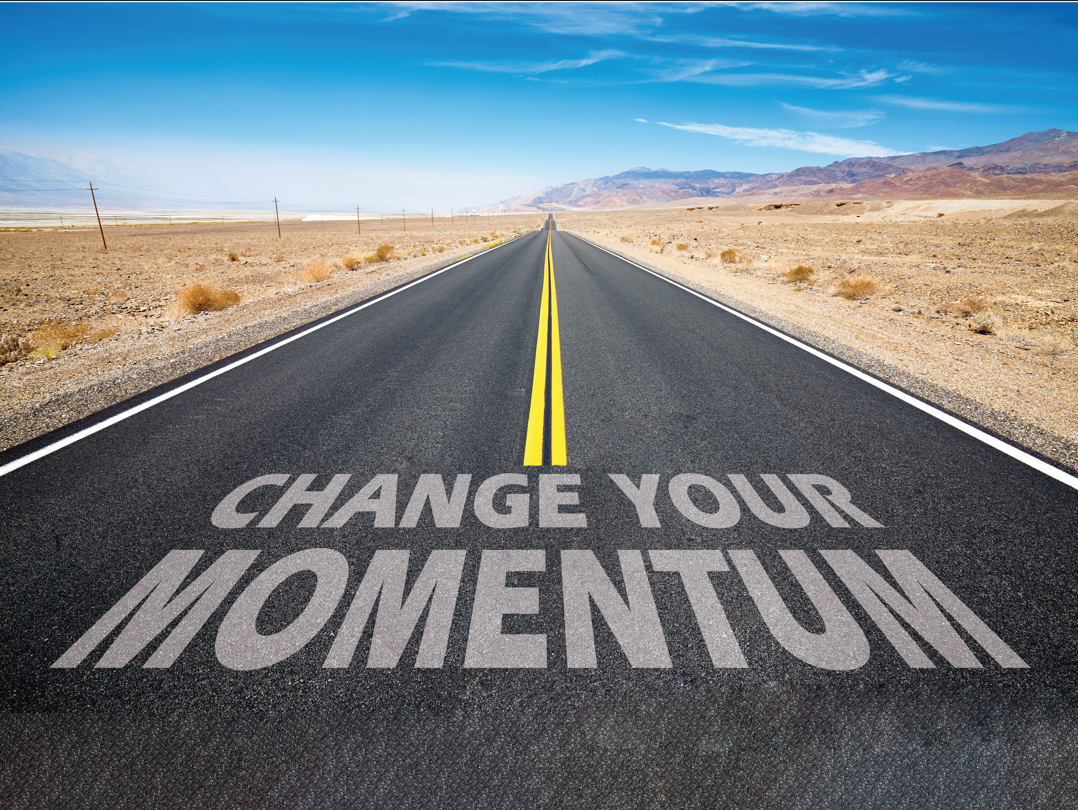Change Your Momentum
by Dr. Chad McIntyre

Life is all about momentum. Think about where your attention has been in recent days and weeks. Whatever it is, that is what has gained the most momentum. Maybe it was a work project, maybe it was one of the kids having a tough time, or perhaps a death in the family. It could just as well be something incredible, like a well-earned vacation with your wife or the increased responsibilities of a new and exciting career path. Good or bad, momentum builds in certain directions, then ping pongs to others. I think of it like a big stove with a bunch of burners, and all the things in our lives that gain our attention are the pots. We constantly juggle which burners get turned up and which get turned down, adjusting momentum accordingly.Life is also about adapting to change, which makes our awareness of the pots on the stove vital. Change is constantly a hard thing. It never stops. What makes it difficult is that it demands we continually adapt. The more rigid we are about things that need to change, the longer it takes. A classic example in the health world is the stubbornness to adopt new and improved habits. From nutrition to alignment to stress management, the more healthy habits we have in place, the more momentum health gets. Whether health is poor or outstanding is based far more on the sum total of bad and good habits than it is on family history. Bad habits that have years of momentum behind them can be challenging to break, but the juice is worth the squeeze of building better habits, especially once the positive momentum gets going.Another example would be financial momentum. My dad had this saying for when he was doing well as a salesman. He would say, “I am rolling,” or if things were not going so well, he would say, “I am not exactly rolling.” Each time he was rolling, he had adapted to whatever needed changing so that he could. Relationships similarly ebb and flow, as the needs of one partner can swallow up the needs of the other, creating rifts and divides. Without adapting, turning down one burner so that another burner can get turned up, expect the consequences. As my wife says, “Attention to one thing is lack of attention to another.”Energy is not in unlimited supply for us mere mortals, so we have to be aware of the pots we have on our stoves of life because the first step in changing momentum is awareness. The next step after awareness is the willingness to adapt. Both steps are influenced by which way the tide of momentum has shifted in the recent or distant past.Remember some of the things that we are up against when trying to make change, like how we form beliefs based on our experiences in the past that can keep us stuck if we are not careful. One of my kids, for example, believes that mayonnaise is disgusting and refuses to eat it, even though it is on every sandwich that my wife makes (not a well-kept secret). “Mayo is gross,” says the belief, even though she loves the sandwiches. We do the same thing as adults, making assumptions based on past experiences and beliefs. It is understandable, of course. Adulting is freaking hard sometimes. It is absolutely exhausting, the sheer amount of thinking required of an adult.My youngest told me recently, “Daddy, it is hard being a kid. I feel like I have a list of twenty different things to work on all the time.” I hear you, son. Don’t we all hear him? Assumptions are just mental shortcuts we take because it is easier sometimes to be wrong than it is to learn something new or develop a new perspective about one. more. thing.Through those assumptions and beliefs, we create theories about life that help us make sense of the world around us, acting like a how-to guide for what to do when life happens. Theory, of course, is not always based on fact, but we often treat our how-to guides as though they were steeped in traditions that apply to everyone rather than as personal traditions that have simply applied to us individually. We become so in-tune with these habits of thought that they can become difficult to change, even when we need them to, especially when we are surrounded by people with the same habits.I told my son at the end of our recent conversation, “Life never stops changing, so you can never stop learning. If you embrace that and do not fight it, you will never stop being teachable. Just be mindful of what you need to work on. Life will usually tell you which ones should get the most attention right now, and then if you stay mindful of the rest, you can give more attention to other things later.”

